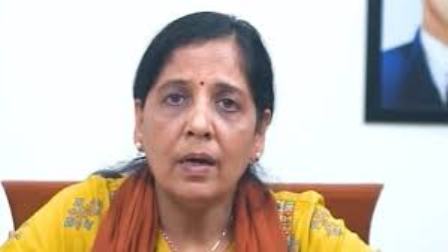Current brand of historicals, couched in fictionalised jingoism, says Amitabh Bachchan

KOLKATA,DEC 16: Actor Amitabh Bachchan on Thursday described the current brand of period films as “couched in fictionalised jingoism”. The actor is usually known to refrain from commenting on political issues on public platforms.
Bachchan, in his speech at the 28th Kolkata International Film Festival which he declared open, pointed out that the Indian film industry has always propagated courage and managed to keep an egalitarian spirit alive.
“Since early times there have been many changes in cinema content from mythological films and socialist cinema to the advent of the angry young man to the current brand of historicals, couched in fictionalised jingoism, along with moral policing,” the octogenarian superstar of Indian cinema said.
He added, “The range has kept audiences reflecting on the politics and social concerns” of the times.
The actor also pointed out, with Shah Rukh Khan on stage along with him, said, “The 1952 Cinematography Act set out the structure of censorship as it stands today upheld by the film certification board. But even now, ladies and gentlemen, and I am sure my colleagues on stage will agree, questions are being raised on civil liberties and freedom of expression.’’
The superstar also spoke of legendary filmmaker Satyajit Ray, with whom he and his wife had shared a close relationship, and pointed out that his 1989 movie ‘Ganashatru’ (enemy of the people) was perhaps an indication of how Ray may have reacted to the current times.
The movie ‘Ganashatru’ highlights the struggle between religious superstition and medieval prejudices in a doctor’s fight against an epidemic.
Bachchan also thanked the ‘City of Joy’ for giving him his first job and for giving his wife Jaya her first film ‘Mahanagar’ (The Big City, 1963) directed by Satyajit Ray. The actor’s first job was at Kolkata-based Bird & Co., a former British-owned firm.
“I salute you all for the artistic temperament that embraces the essence of plurality, that is what makes Bengal so special,” he said.
Quoting Rabindranath Tagore, he said Gurudev had penned lines that yearned for a new tomorrow.
Speaking on the evolving audience, he said, “Today’s viewers are exposed to international content. They have many options. This throws new challenges to our entertainment industry. Let us discover more of that. Let us find new summits to conquer.”
Bachchan also paid tributes to Bengali film doyens Mrinal Sen and Ritwik Ghatak and recalled how their movies touched upon social realities after Independence.
“Ritwik Ghatak’s birth centenary is in 2025. His films dealt with the ruthless social realities after partition of the country,” he said.
Filmmaker Mahesh Bhat, in his address, read out a poem of Tagore underscoring India’s inclusiveness amid diversity. “Story-tellers’ work entails bringing together polarised hearts. Mamata Ji has done that by organising such a festival,” he said.
Meanwhile, Bollywood megastar Shah Rukh Khan on Thursday said that whatever happens surrounding people like him, they will stay positive. “Cinema is the best place to sustain a counter-narrative that speaks to the larger nature of humankind,” Khan, the guest of honour at KIFF, said.
Khan also said that social media was often driven by a narrowness of views that enclose collective narrative and makes it more divisive and destructive. The comments came in the midst of a row created by right-wing outfits over a song in his upcoming film ‘Pathaan’.
However, BJP’s IT cell chief and the special observer for the party in West Bengal, Amit Malviya used Bachcha’s speech to attack TMC TMC supremo and West Bengal Chief Minister Mamata Banerjee instead. He tweeted: “Amitabh Bachchan’s words couldn’t have been more prophetic since they were spoken in Kolkata, with Mamata Banerjee on the dais. It is like holding a mirror to the tyrant, under whose watch India witnessed the bloodiest post-poll violence. She has tarnished the image of Bengal…”
-The New Indian Express






